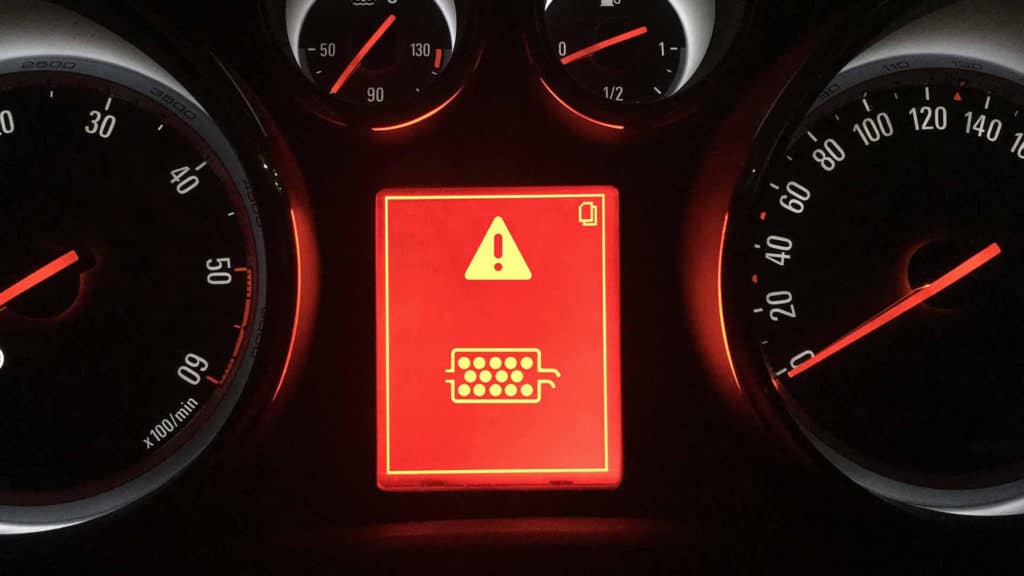Diesel Particulate Filters (DPFs) – What They Do and How to Maintain Them
Since 2009, all diesel engines have required diesel particulate filters (DPFs), in order to filter harmful emissions, to help reduce pollution.
Diesel engines emit harmful particles during combustion, which are captured and stored in these Diesel Particulate Filters to prevent them from entering the environment. In the absence of one, a vehicle no longer meets emission standards. Without proper maintenance, DPFs can fail, and if this occurs, the vehicle will not be road legal.
In this blog we will explain how DPFs work, suggest ways in which to prevent problems from occurring, look at the most common reasons why DPFs fail, and offer insight into the importance of regular DPF maintenance and cleaning.
If you own a diesel engine or just want to learn more about Diesel Particulate Filters, this blog is for you!
With that said, let’s get started…

How Do Diesel Particulate Filters Work?
Diesel Particulate Filters (DPFs) capture and store particulate matter (soot) emitted from diesel engines during combustion. Diesel engines contribute to air pollution, which is why DPFs are an essential component of modern diesel engines.
Most DPFs are made of ceramic materials, which have thousands of tiny holes that trap soot particles. These soot particles within the DPF will eventually clog the component, so periodic cleaning is necessary to prevent this. The process of declogging is called ‘regeneration’.
Two methods are typically used to burn off soot particles in a DPF:
Passive Regeneration: In this case, the exhaust gases of the engine are hot enough to burn off the soot particles on their own. The condition usually occurs on motorways or dual carriageways when the engine is under higher loads, causing exhaust gases to heat up and cause passive regeneration.
Active Regeneration: There are times when the engine’s operating conditions prevent passive regeneration. During active regeneration, the engine control unit (ECU) injects extra fuel into the engine, which raises exhaust gas temperatures and burns off soot particles in the DPF. During the process, which can take up to 30 minutes, you may see a warning light on the dashboard.
In order for the Diesel Particulate Filter to remain efficient and prevent harmful pollutants from entering the environment, regeneration is essential.
Why Are Diesel Particulate Filters Necessary?
Diesel Particulate filters (DPFs) are required by regulations such as Euro 5, which have been in force for more than a decade. These regulations require diesel engines to use DPFs in order to reduce harmful fumes, such as CO2.
In addition, it is illegal to operate a vehicle without a functioning DPF if it does not meet emissions standards. Since February 2014, MOT testing must include DPF checks, so vehicle owners cannot avoid them. In the case of non-compliance with emissions standards, fines and penalties may be imposed.
What Is the Cause of Diesel Particle Filter Failure?
Diesel Particulate Filter (DPF) failure can result in engine damage and reduced engine performance. The following factors commonly cause DPF failures:
- Overheating: Overheated DPFs may melt or crack, reducing their efficiency or causing them to fail.
- Clogging: The accumulation of soot particles during regeneration may not be burned off properly, resulting in clogged DPFs. Due to this, the DPF can become clogged, reducing engine performance and limiting exhaust flow.
- Neglecting Maintenance: By skipping scheduled cleanings, the DPF becomes clogged, reducing its efficiency.
- Fuel Contamination: When fuel is contaminated with sulphur or water, ceramic filters in DPFs can be damaged, leading to inefficiency or failure.
- Faulty sensors: Faulty sensors may cause the engine to work outside of the DPF’s optimal operating range. As a result, the filter may become clogged or damaged.
In order to prevent DPF failure, a regular maintenance schedule must be adhered to as recommended by the manufacturer, the correct fuel must be used, and excessive idling should be avoided. Monitoring the engine’s performance regularly and responding to any issues right away can also prevent DPF failure.
What Are the Signs of a Faulty DPF?
If your DPF is malfunctioning, you may experience one of the following:
- Strange Noises: Clogged DPFs can cause unusual sounds like rattling and banging when exhaust pressure increases.
- Reduced Performance: A clogged or failing DPF can reduce engine performance, resulting in reduced acceleration and power.
- Strong Exhaust Smells: Unburned soot and particulates can accumulate in a failed DPF, resulting in a strong exhaust smell.
- Dashboard Warning Light: In the event of a malfunctioning DPF, the dashboard usually displays a warning light. Most often, a symbol resembling a down arrow or the word “DPF” is displayed.
- Increased Fuel Consumption: When the DPF malfunctions, the engine consumes more fuel than usual, reducing fuel efficiency.
You should have your vehicle inspected at a reputable garage, like Donnellan Auto Services, as soon as you notice any of these signs. Leaving a DPF problem unattended can have very costly consequences, so it’s better to address any problems as soon as possible.
Tips for Preventing Diesel Particulate Filter (DPF) Issues
You can follow these tips from our DPF experts to prevent issues with your vehicle:
- Maintain Your Vehicle: By regularly servicing your vehicle, including changing the oil and air filter, you can prevent engine problems that may lead to DPF failure.
- Avoid Idling: Idling or driving short distances can cause the DPF to clog, so it is advisable to avoid these driving habits.
- Use the Correct Type of Oil: By using the correct oil, DPF issues can be avoided. In order to reduce soot buildup in DPFs, low-ash or ashless oils should be used since they produce fewer particles when burned.
- Use High-Quality Fuel: The quality of the fuel in your vehicle plays an important role in preventing DPF problems. In the case of contaminated or low-quality fuel, the DPF can be damaged, and the engine’s performance can be reduced.
In Summary
In order to meet emission standards, all modern diesel engines must have a fully functioning DPF. In addition to failing the MOT, poorly performing DPFs can cause engine faults and reduce the performance of your vehicle.
Maintain your vehicle properly, ensure you use high-quality fuel and oil, occasionally take longer motorway journeys to trigger passive regeneration, and avoid prolonged idling to avoid DPF issues. Through monitoring your vehicle’s performance, you can address any issues as soon as they arise.
By following the tips above, your DPF will continue to function properly and will reduce harmful emissions.
With Donnellan Auto Services, you can avoid costly repairs by receiving a precise DPF diagnosis. If you have a DPF issue, you can count on our team at Donnellan Auto Services. To schedule an appointment, call today on 091 792474.
Our Location
Find Us
Donnellan Auto Services
Oranmore Business Park
Oranmore
County Galway
H91 HPC0
091 792474
Opening Times
| Monday | 08:30 - 17:00 |
|---|---|
| Tuesday | 08:30 - 17:00 |
| Wednesday | 08:30 - 17:00 |
| Thursday | 08:30 - 17:00 |
| Friday | 08:00 - 16:30 |
| Saturday | Closed |
| Sunday | Closed |




Car Repairs & Services
- ADAS Calibration
- Airbag Repairs
- Automatic Gearbox Servicing
- Car Air Conditioning
- Car Batteries
- Car Brakes
- Car Diagnostics
- Car Lights
- Car Repairs
- Car Safety Checks
- Car Servicing
- Car Tyres
- Clutch Replacement
- EV Repairs & Servicing
- Fleet Maintenance
- German Vehicle Specialists
- Hybrid Repairs & Servicing
- Mechanical Repairs
- NCT/CVRT Preparation
- Oil Change
- Steering
- Suspension
- Timing Belts / Cambelts
- Van Repairs & Servicing
- Wheel Alignment
- Wheel Balancing
- All Car Repairs & Services…





